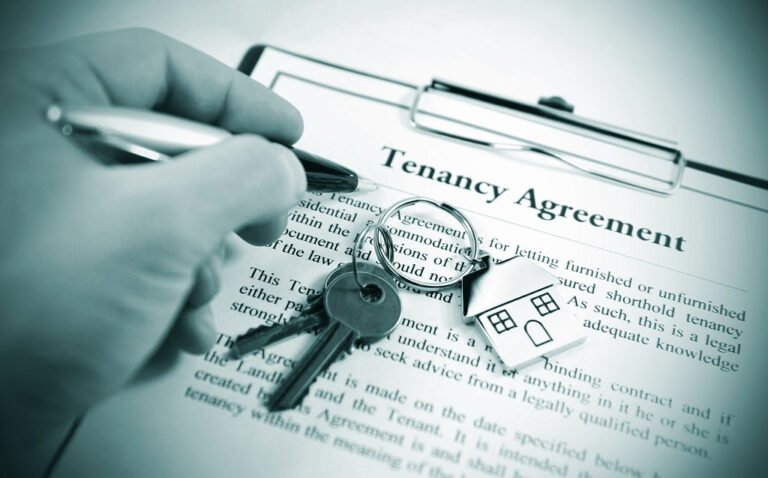It’s important for landlords and tenants to feel confident and protected when a tenancy ends. The tenancy deposit plays a crucial role in achieving this balance, giving landlords peace of mind while reassuring tenants that any deductions will be fair and reasonable.
However, disputes over deposits can occur, often because of misunderstandings about what can and can’t be claimed. In this guide, we’ll walk you through the essentials of deposit deductions: what’s allowed, how to avoid disputes, and the important concepts of fair wear and tear and betterment.
What is a tenancy deposit?
A tenancy deposit is a sum paid by the tenant at the start of their agreement, designed to protect the landlord against financial losses. It may cover unpaid rent, damage, or breaches of the tenancy agreement.
In England, deposits taken under an assured shorthold tenancy must be protected within 30 days in a government-approved tenancy deposit protection (TDP) scheme, and tenants must be informed of where their money is held.
Learn more in our Deposit Return Guide.
What Can Be Deducted from a Deposit?
Landlords can make reasonable deductions if they’ve suffered financial loss due to the tenant’s actions or inactions. Here are the most common claims:
Cleaning
Tenants must leave the property as clean as it was when they moved in. However, landlords cannot demand professional cleaning unless explicitly agreed upon in the tenancy agreement. The cleaning standard should match, not exceed, the property’s condition at the start of the tenancy.
Damage to Property or Missing Items
Landlords can claim for items damaged or removed by the tenant. Deductions should reflect the item’s age, quality, and expected lifespan, avoiding betterment (explained below).
Redecoration Costs
If tenants cause damage to walls or make unauthorised changes, landlords can claim the cost of restoring the original condition. However, minor scuffs or faded paint due to normal use are considered fair wear and tear.
Garden Maintenance
Where the tenancy agreement specifies garden upkeep, tenants are expected to return outdoor spaces in the same condition they were in at the start of the tenancy, allowing for seasonal changes.
Unpaid Rent or Utility Bills
Any outstanding rent or utility bills that fall under the tenant’s responsibility can be deducted, provided there is clear evidence of the amounts owed.
Costs from Early Termination
If a tenant ends the tenancy early without proper notice, landlords can deduct related costs, such as lost rent or advertising fees, from the deposit.
Understanding fair wear and tear
Fair wear and tear refers to the natural deterioration of a property or its contents due to regular use. For instance, faded curtains or minor scuff marks on walls from furniture are examples of wear and tear—not damage.
When assessing wear and tear, landlords should consider:
- The item’s age and quality: Older or lower-quality items will naturally wear out faster.
- Length of tenancy: A longer tenancy is likely to result in more wear and tear.
- Number of occupants: More people living in the property may lead to quicker wear of fixtures and fittings.
Example: If a carpet is worn down in high-traffic areas over a long tenancy, it’s considered wear and tear. However, a burn mark on the carpet caused by a tenant would justify a deduction for repair or replacement.
Avoiding betterment
Betterment occurs when a landlord seeks to improve the property at the tenant’s expense. For example, replacing a five-year-old sofa with a brand-new one and charging the tenant the full cost would leave the landlord better off than before the damage occurred.
To avoid betterment, landlords should make deductions on a like-for-like basis, factoring in the item’s age, quality, and lifespan. If replacing an old carpet, for instance, only the remaining value of the original carpet should be charged to the tenant.
Tips for avoiding disputes
Deposit disputes can often be avoided with clear communication and thorough preparation. Here’s how:
Set clear expectations
Ensure the tenancy agreement outlines responsibilities for cleaning, maintenance, and any other expectations, such as garden upkeep or professional cleaning.
Create a detailed inventory
Document the condition of the property with a detailed written inventory and high-quality photographs at the start of the tenancy.
Regular inspections
Periodic inspections help identify any issues early, giving tenants time to address them before they become bigger problems.
Maintain good communication
Encourage tenants to report issues promptly and address them promptly. Open dialogue reduces the likelihood of disputes escalating.
Keep evidence
Retain records of communications, invoices, and receipts for any work carried out during or after the tenancy. This will support any deductions made.
When you work with the letting agents at Parkers, we’ll look after this all for you. Find out about our flexible range of property management services today.
Why some deposit disputes are lost
Even the strongest case for deposit deductions can fall apart without proper evidence to back it up. Many landlords run into trouble by not having a thorough inventory at the start of the tenancy or by finding it tricky to tell the difference between normal wear and tear and actual damage.
Not taking enough photos can also make it hard to prove your case, while asking for too much money or not considering the age of items can work against you. That’s why it’s worth getting an independent check-in and check-out service – they’ll provide detailed, unbiased reports that can make all the difference if there’s a dispute later on. It’s better to be thorough from the start than wish you had more evidence when you need it.
The role of negotiation
Most tenancies end amicably, and honest negotiation can resolve many disputes. If a disagreement arises, landlords should clearly explain their reasoning and provide evidence to support their claims. Tenants, in turn, should share their perspectives and raise any concerns respectfully.
If a resolution isn’t possible, tenancy deposit protection schemes offer free Alternative Dispute Resolution (ADR) services to make an impartial decision based on the evidence provided.
For more guidance, take a look at our property management services. Whether you’re letting or renting, we’re here to make the process smooth, fair, and worry-free.







